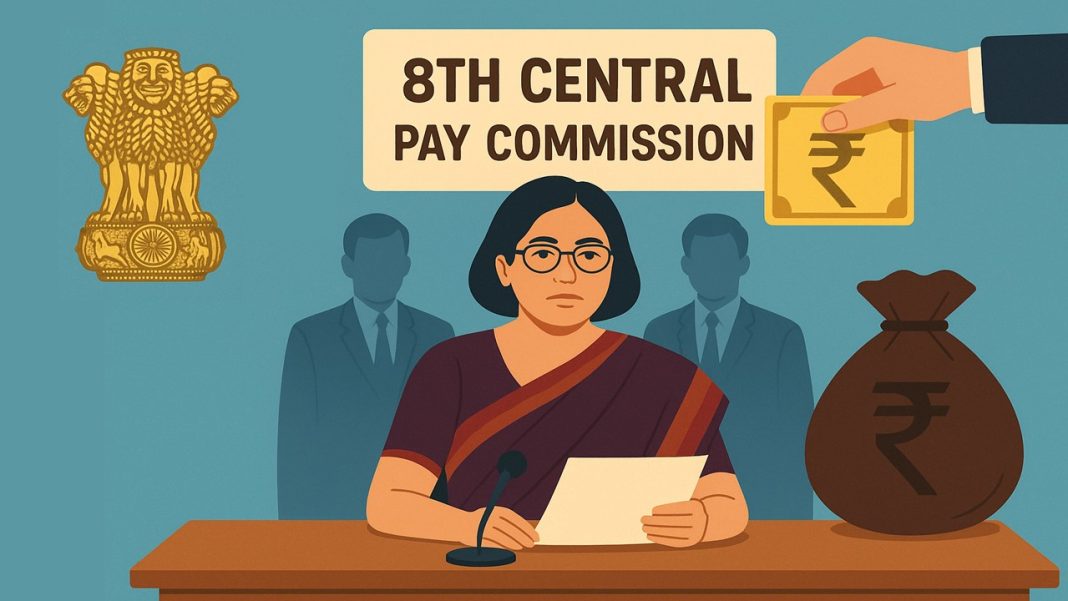Government Launches 8th Central Pay Commission: Salary, Pension Revisions Likely from January 2026
The government has officially started the process for the 8th Central Pay Commission (CPC), which will decide the next increase in salaries and pensions for about 50 lakh central government employees and 69 lakh pensioners.
The commission will be led by former Supreme Court judge Ranjana Prakash Desai, and it has 18 months to prepare and submit its report.
The new pay and pension structure are expected to take effect from January 1, 2026.
Ashwini Vaishnaw added while announcing the decisions and information that “The specific date (of implementation) will be decided once the interim report comes in. But mostly it should be January 1, 2026.”
However, this decision has created attention because the timing of the announcement is just ahead of the Bihar elections scheduled for November 6 and 11 and it directly impacts millions of employees and retirees across the country.
What Do You Mean By The Terms of Reference (ToR)?
The Terms of Reference (ToR) are like an official guidebook that tells the commission what to do and how to do it. It explains the main goals, topics to focus on, and the time limits for the commission’s work.
For the 8th Pay Commission, the ToR were prepared after detailed discussions with different ministries, state governments, and employee unions to make sure everyone’s views were included.
Who’s Part Of The Commission?
Apart from Justice Desai, who is the chairperson, the commission also includes IIM Bangalore professor Pulak Ghosh as a part-time member and Petroleum Secretary Pankaj Jain as the member secretary, according to news agency PTI.
Justice Desai is currently the head of the Press Council of India and has earlier led important national committees, such as the Delimitation Commission for Jammu and Kashmir and the Uttarakhand Uniform Civil Code (UCC) committee. This will be her fourth major role after retiring from the Supreme Court.
What will the 8th Pay Commission Focus On?
The commission will study the following things before making its decisions.
- How the country’s economy is doing and whether the government needs to control spending.
- Making sure enough money is left for welfare and development programmes.
- Checking the cost of pensions that the government fully pays for (non-contributory pensions).
- Looking at how the decisions will affect state governments, since most states follow the Centre’s pay recommendations.
- Comparing government salaries and working conditions with those in public sector companies and private firms.
Timeline and What to Expect
If you work for the government, the new pay scales are likely to start from January 1, 2026, once the government approves the recommendations of the 8th Pay Commission. This follows the usual 10-year cycle that began with the First Pay Commission.
The 7th Pay Commission was set up in 2014 and came into effect on January 1, 2016.
Until the new pay scales are implemented, employees will continue to get Dearness Allowance (DA) increases twice a year to help deal with inflation.
For millions of government employees and pensioners, the 8th Pay Commission means:
- Higher salaries
- Revised allowances
- Improved benefits
It may also guide state governments in revising their own pay scales, as they usually follow the Centre’s pattern.
The exact salary hike will be known only after the commission submits its report. The approval of the Terms of Reference (ToR) means the process has now officially started.



